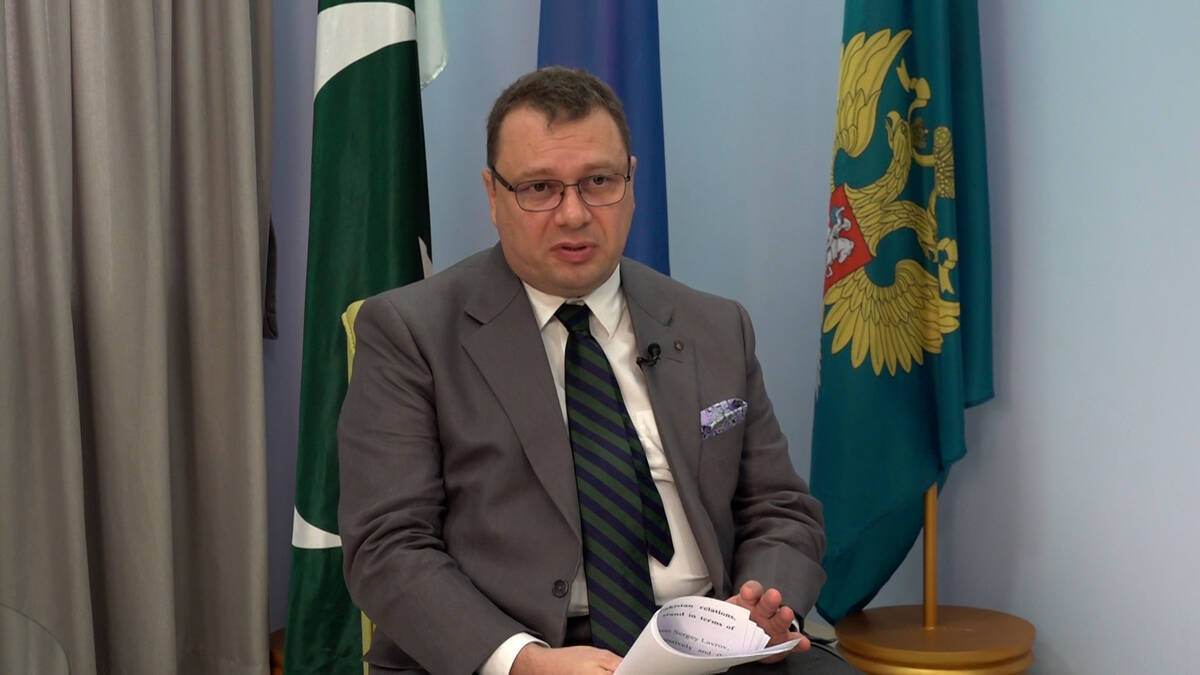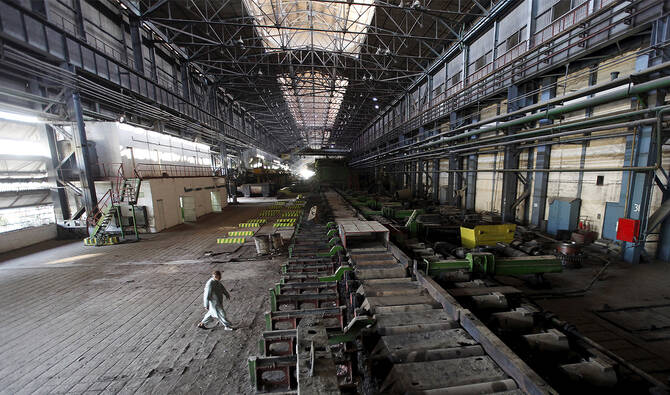ISLAMABAD: PakistanŌĆÖs benchmark KSE-100 Index rose by 60 percent during the last fiscal year, a top brokerage firm said in its report this week, crediting the stock marketŌĆÖs impressive performance to macroeconomic stability, improved credit ratings and ŌĆ£aggressiveŌĆØ easing of the monetary policy.┬Ā
Pakistan has undertaken a series of International Monetary Fund-recommended structural reforms and fiscal adjustments aimed at stabilizing the economy since it came to the brink of a sovereign default in 2023. These measures have led to increasing macroeconomic stability, reduced inflation and improved ratings from international credit agencies.┬Ā
ŌĆ£PakistanŌĆÖs benchmark KSE-100 index is up 60 percent YoY in PKR terms and 57 percent in USD terms in FY25,ŌĆØ Topline Securities, a Karachi-based top brokerage firm, said on Monday.┬Ā
The report said that over the past two fiscal years (FY24 and FY25), the PSX has recorded a total gain of 203 percent in terms of the Pakistani rupee and 206 percent in terms of the US dollar. It credited the Pakistan Stock ExchangeŌĆÖs (PSX) rise to macroeconomic stability achieved by the country after it secured a $7 billion International Monetary FundŌĆÖs (IMF) loan program.┬Ā
Topline Securities said other factors contributing to the ŌĆ£remarkable rallyŌĆØ at the stock market are the completion of the IMFŌĆÖs first review by Pakistan in March, the central bankŌĆÖs ŌĆ£aggressiveŌĆØ monetary easing from 20.5 percent to 11 percent, and improvement in the countryŌĆÖs credit rating by Fitch from CCC+ to B-.
ŌĆ£As per Bloomberg data, PakistanŌĆÖs market was the 8th best performer in FY25 with a total USD return of 57 percent,ŌĆØ the report said. ŌĆ£However, over the cumulative two-year period (FY24 and FY25), it ranked as the best-performing market in the world.ŌĆØ
The report noted that average traded volumes in the cash/ready market increased by 37 percent YoY to an average of 631 million shares per day during FY25, adding that the average traded value also jumped by 80 percent YoY to Rs28 billion per day.
The report warned Pakistan may face pressure in achieving its revenue targets for FY26 but said it expected the government to pass the IMFŌĆÖs program reviews in a timely manner by meeting the lenderŌĆÖs objectives. This, the report said, Islamabad would achieve through cutting development and other non-essential expenditures.
Topline Securities said it also expected a credit rating upgrade for Pakistan in the current fiscal year.
ŌĆ£The rating upgrade in our view is quite likely as debt ratios and FX reserves are showing improvements,ŌĆØ the report said. ŌĆ£With the credit rating upgrade to ŌĆśBŌĆÖ category, Pakistan may resort to the international bond market by issuing Eurobond and Sukuks which will further support FX reserves and strengthen the debt maturity profile of the country,ŌĆØ it added.┬Ā
The report pointed out that any developments in PakistanŌĆōUS relations under President Donald TrumpŌĆÖs administration, along with regional tensions, could ŌĆ£significantly influence market sentiment.ŌĆØ
ŌĆ£Currently, a ceasefire is in place between India and Pakistan; however, any escalation could negatively affect investor confidence,ŌĆØ it said.
It also warned that any further conflict in the Middle East is likely to have broader macroeconomic implications for Pakistan amidst its dependency on oil imports, which could then weigh on the stock marketŌĆÖs performance.
























